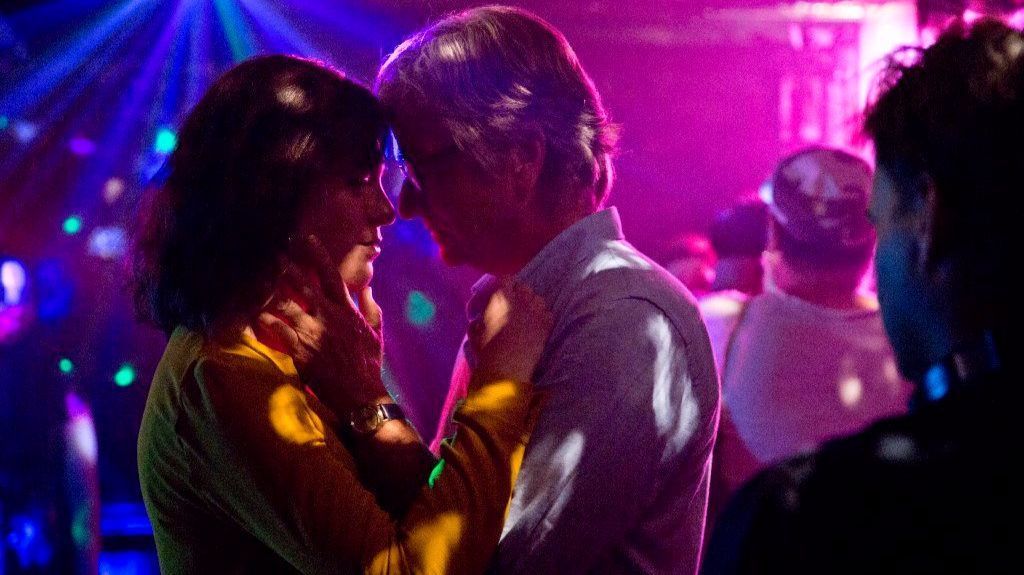Milan Kundera once wrote, “The Greek word for ‘return’ is nostos and algos means ‘suffering’. So nostalgia is the suffering caused by a yearning to return. The corresponding word for nostalgia in Portuguese is saudade, a deep emotional state or a profound melancholic longing for an absent something or someone. The Icelandic have a different term for the specific longing for one’s homeland, heimpra. And the Czech have made an expression of love out of it – ‘styska se mi po tobe’ which means ‘I am nostalgic for you’. In English, we only use ‘nostalgia’ to refer to our past or childhood.”
When our words for – and our comprehension of – certain feelings can be so variant (and so easily lost in translation), it’s no wonder that relationships can vary so much across cultures.
Despite that, ‘A Fantastic Woman’ made an Indian like me feel like I have always lived in the Chilean city of Santiago. Nothing about the film feels foreign, washing over me with a sense of familiarity. Watching Daniela Vega’s body language as Marina Vidal, I felt that she is just like me. Another person who cannot make sense of the skin she wears, whose private moments of tragedy are interrupted by social externalities. Someone who is obligated to provide an explanation for who and what she is, when all she wants is a small, dark corner to cry her heart out in.
The world is structured in a hierarchy of gender. Men come first. Women (or as Sigmund Freud referred to them, castrated males) come second. Third, if you are a woman who dares to love another woman. Maybe even worse, if you are a man trying to kiss another man, because then you’re squandering your superiority. And if you don’t identify with a specific gender, or any gender, your humanity itself is met with scepticism.
As individuality and societal acceptance wage war against each other, love bleeds a slow death.
The film starts with a scene of Marina Vidal’s lover receiving a massage, but it’s not the kind of massage which relaxes you. The frame shows things slower than they are as if the moment is decelerating; reminding me of the fact that sadness often makes us feel time more intensely. Marina and Orlando’s love is depicted simply. It seems to exist beyond the imposed boundaries of gender, beyond categories like ‘short-term’ or ‘long-term’. In their world, it doesn’t matter if Marina is trans or Orlando is cis. It is just the most spontaneous and natural thing that can happen between two people who like each other.
But no great love story gets away from the scrutiny of ‘well-wishers’. Your happiness is often an object of curiosity for the unhappy people who surround you. Their expectations of what a relationship ought and ought not to be weigh down on you. In my life, none of my casual relationships have ever felt any different from the long-term ones which carry a halo of promises around them. They have all been similar in intimacy, similar in honesty. All that makes a short-term relationship different from a long-term one, is circumstances.
However, it’s hard to escape the pall of ‘eternity’ which apparently changes everything. As if ‘eternity’ is anything substantial or even the nature of life. To me, it’s simple – If you’re not happy, then you won’t last. When Orlando dies suddenly, Marina’s life and personhood dissolves at the hands of people who are supposedly closer to Orlando, who question everything about the woman he loved. She’s treated with suspicion by Orlando’s surviving family, pushed out of the home they shared, even dismissed by the police.
Death is the inevitable obstacle to eternity. It’s cruelty is inflicted not so much on the deceased, but those left behind. When Marina loses her better half, she realises she’ll have to fight to keep her remaining half intact. She tries to cover up her grief with invisibility. She is just a waitress, she is just a singer at the bar, she is just another depressed lonely woman who depends on her dog for emotional support, she tells herself. But pain demands that it be felt, be acknowledged. In Marina’s case, when you’re not a member of the conventional relationship crew, you can’t even afford invisibility. In such times, what should she mourn over? The demise of her future with a partner she loved, or the irreversible ‘mistake’ of being who she is?
Marina’s dilemma reminded me of this wonderful poem by Lee Mokobe:
I wonder how long it will be
before the trans suicide notes start to feel redundant,
before we realize that our bodies become lessons about sin
way before we learn how to love them.
Like God didn’t save all this breath and mercy,
like my blood is not the wine that washed over Jesus’ feet.
My prayers are now getting stuck in my throat.
Maybe I am finally fixed, maybe I just don’t care,
maybe God finally listened to my prayers.
A Fantastic Woman feels like a lump in your throat. Like the misery of an early winter sunset even as you secretly anticipate snowfall (despite there being no sign of its arrival). Thomas Bernhard once wrote, “Instead of committing suicide, people go to work,” as if it is but a conscious, commendable choice to be made. Albert Camus often found himself choosing a cup of coffee over death. This film helped me understand what they meant.
Bijaya Biswal is a 23-year-old MBBS student from Odisha.
Featured image credit: Scene from the movie/Sony Pictures

